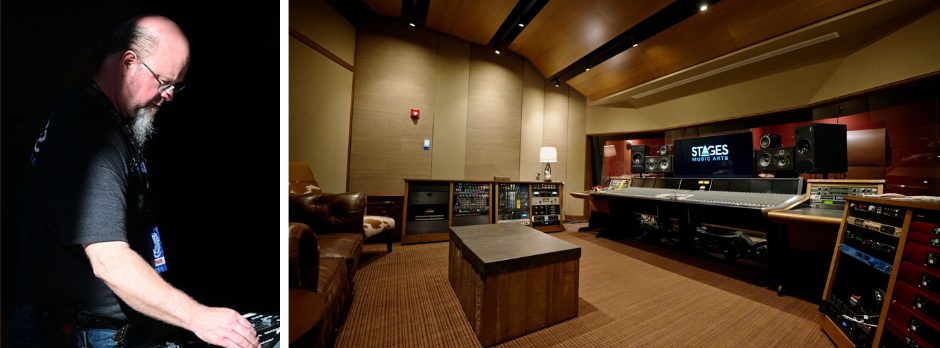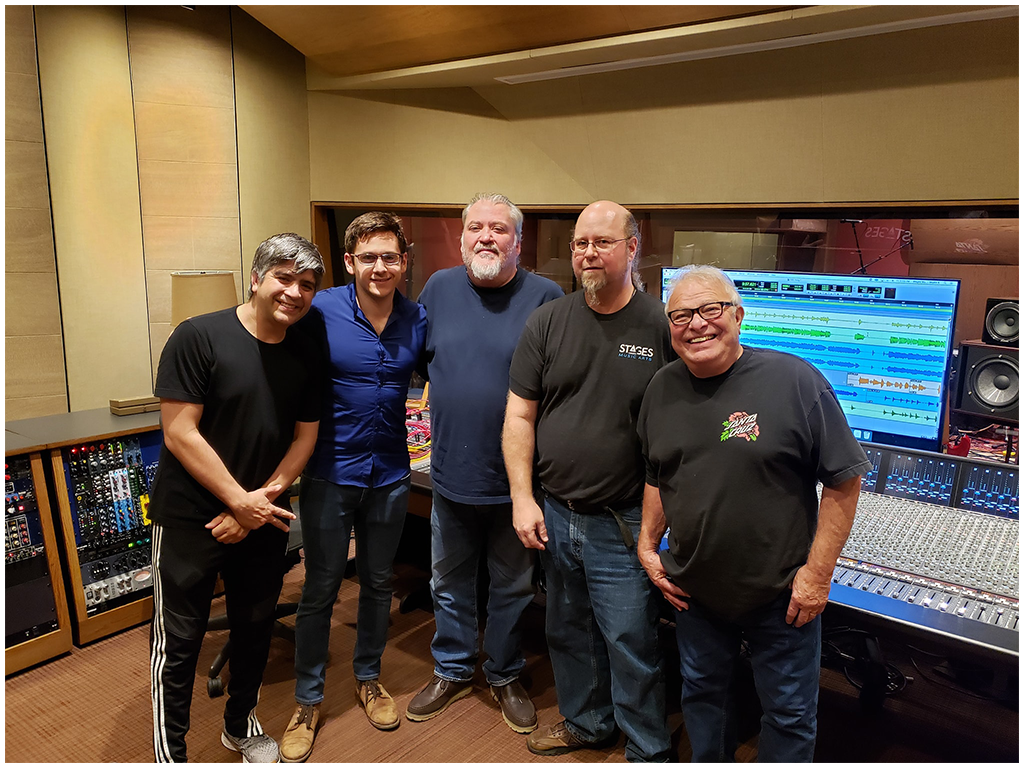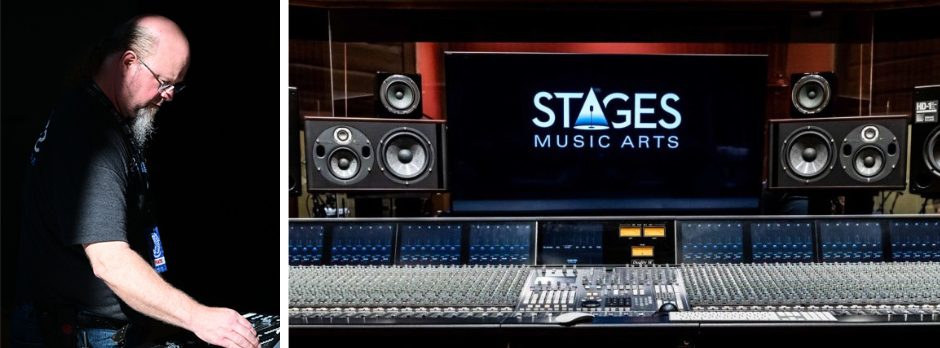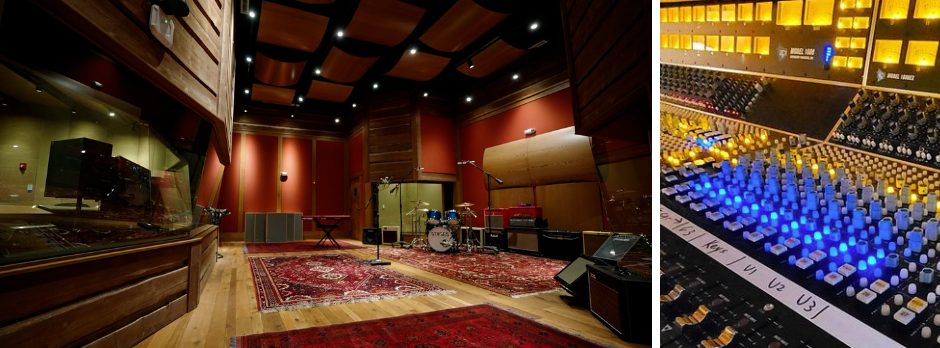Audio Engineer Q&A with Producer Dave Nachodsky


Stages Music Arts is proud to have Dave Nachodsky as our head studio engineer and record producer. We sat down to pick Dave’s brain about his experience and career.
I started mixing live for my older brother’s band while I was in high school. Then I started hanging around in a project studio helping out for free, with my eyes and ears completely open. What I love the most about it is when a project is finished, hearing the thing in its entirety and having the artist say that it is better than they could have ever imagined.
Yes, I played bass guitar for many years and still play on projects when necessary. You don’t HAVE to play, but it helps to speak the “language.” But the thing that you MUST have is ‘musicality,’ which is really more of a sense. I have run across many ‘non-musicians’ who have a very high sense of musicality. I have also run across many musicians with this ability, and some who do not have a shred of it!
That would be recording Los Lobos doing a re-recording of the song ‘LaBamba’ for the New Year’s Day Rose Parade. David Hidalgo started playing the guitar riff to the song. All I did is pot up the microphone on the amp and said “there it is – that’s LaBamba!” After recording the drums, guitar and bass, he needed to sing. Again, all I did is pot up the vocal microphone and hit play. He started singing. There it was – ‘that’s LaBamba!’. The sound was in the players, and basically a chimpanzee could have recorded it and it would have been ‘LaBamba’!

I did a session where the client wanted the sounds of birds in their recording. After an hour of trying the usual sound effect discs, playing guitar with a slide with echo, and many other attempts at ‘bird sounds’, the client says “Those are all great bird sounds, but they are not the sound of birds that I had in my dream.” With that said, my studio assistant, who was out in the room with the microphones on, picked up two large phone books and started flapping them furiously. The client shouts “THAT’S IT!!!!!,” so I hit the record button and was motioning to the assistant to keep on flapping!!! A few more moments of flapping and some editing, and they were very happy!
The most important thing to me is the feel. I would take a sonically flawed version of a great feeling part any time. However, if you are prepared with mic placement and just a little bit of a sound check, you can get the band up and ready to go in a very short time, preserving the usually great feeling of a first take, and still having great sound. Sometimes it is better to let a guitar player use their pedals and amp, even if the studio may have something that would sound better, as this keeps them in the comfort zone, which keeps the feel. The worst thing to happen is when people are uncomfortable – the feel, timing, tuning and musicality goes out the window.
I do not like comping. The final result, say a guitar solo, usually feels ungrounded. The musician needs the knowledge of where they are coming from and where they are going. It’s better for me to do a couple of takes that begin to expose some ‘landmarks’ or ‘waypoints,’ say, about half way through, you need to be about HERE. Then all they need to do is get from one waypoint to another and in the end you have a really good, informed solo.
“Every album has a ‘philosophy’ about it – a sort of road map containing boundaries, at least for the album. Every album can have a different philosophy and set of boundaries – the boundaries can even be ‘no boundaries’. Totally open.“

Lots of reading and listening – not necessarily my own stuff, mostly other people’s stuff – absorbing sounds and approaches to an album. Every album has a ‘philosophy’ about it – a sort of road map containing boundaries, at least for the album. Every album can have a different philosophy and set of boundaries – the boundaries can even be ‘no boundaries’. Totally open.
Mixing for me is a ‘feel’ thing. I feel balance and frequencies and volumes physically. There is a negative feeling when things are not working together, and a positive feeling when they are. So I basically move things around here and there until I get the right feeling. Noise and distortion also introduce their own feels, so if the band is really looking for these ‘uncomfortable’ feels, I try to do things that amplify that feeling. Amplifying the right feeling is crucial here.

It takes many small, say 1 or 2 percent changes to the song, whether it is the arrangement, the tempo, the entrances of the parts, then the sounds, the microphones, then the performances. There is no one giant trick or microphone or plugin that takes the song and makes it 50 percent better. You must work through all of the elements and make many small changes. THOSE will all add up to a giant change in the quality of the recording.
Well, there are schools and such, but the most important thing is to get into as many studio sessions as you possibly can, even if you are sitting against the back wall observing. Being able to absorb the vibe of a session and see how the producer creates (or destroys) a great vibe. This gets the musicians really going, THEN you can ask them to do certain things for you, but only if they are inspired.
studio@stagesmusicarts.com | 443-353-5307
Sign up with your email address to receive news and updates.